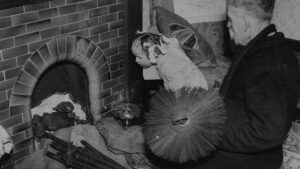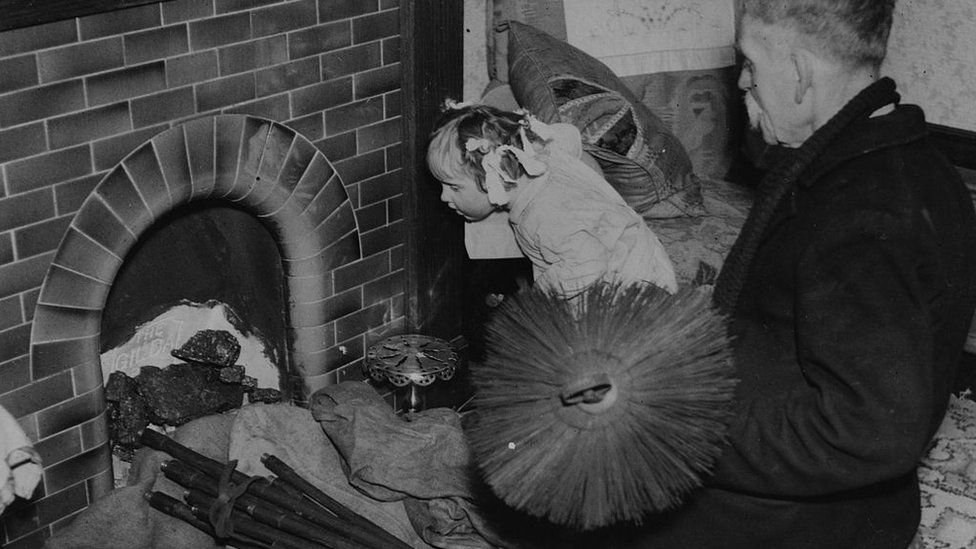Chimney Sweep Charleston SC is someone who cleans the ash and debris from chimneys. This process uses the pressure difference created by a hot column of gas or wood to draw air through the chimney. Chimneys may be straight or may contain numerous bends and turns. Having someone come out to your home to clean out your chimney can ensure your home is safe and healthy.
Chimney sweeps tend to be self-employed, and during the busy season (September through January), they can spend up to 12 hours a day at work. However, there is very little work in the off-season, so many sweeps take other jobs to make ends meet.
The job can be challenging, as chimney sweeping requires a high level of physical agility and strength. Moreover, the job involves working in cramped spaces and at high elevations. In addition, the chemicals used for a chimney cleaning can cause respiratory problems. This is why proper safety equipment is so important for the employees of a chimney sweeping company.
Chimney sweeps make a high salary. Most employees are self-employed, and their salary ranges from $12,000 to $25,000. However, some sweeps report earning up to $80,000 per year. Of course, salaries will vary based on experience and education. A high school diploma is the most common educational requirement for this profession, but other degrees, such as an associate degree or a bachelor’s degree, are also acceptable.
When hiring a chimney sweep company, make sure that you vet their credentials. A reputable chimney sweep company will require their employees to have I.D.s and wear uniforms with the company name on them. They will also be required to attend mandatory training courses to stay up to date on the latest industry advances.
You can also invest in business software that can streamline your workflow and make billing easier. This software will help you manage your customers and employees more efficiently. WorkWave offers a desktop version and a smartphone app. This software helps you automate billing cycles and allows your technicians to process payments on the job site.
A chimney sweep business should have adequate insurance coverage to protect the business and employees. This insurance is necessary because chimney sweepers expose themselves and their clients to many risks. For example, if they damage a home or property, it could result in thousands of dollars in damage. In addition, they can be sued for damages resulting from an incident. A lawsuit could bankrupt a chimney sweep business.
In addition to liability insurance, chimney sweeps should have inland marine insurance. This insurance protects the tools that are in transit and can cover theft. Additionally, the company’s vehicles should be covered by commercial auto insurance. This insurance covers both bodily injury and property damage, and it can help you avoid being sued by a third party in an accident involving your company.
Chimney sweeps use specialized equipment to clean and inspect fireplaces, fireplace inserts, and chimneys. Many chimney sweeps use industrial vacuums to collect debris, and others use specialized scopes and cameras. These tools help chimney sweeps see any physical damage to the structure of a chimney before it becomes a problem. The equipment also allows them to safely clean the area after the job is complete.
Chimney sweeps also use a powerful flashlight. This flashlight should have a long beam and a powerful battery. A flashlight with an adjustable beam is another smart choice for a chimney sweeper. Using a vacuum hose can be difficult when large amounts of debris are present. An accessory kit can provide multiple attachments for a more thorough cleaning.
Chimney sweeps use specialized brushes to clean chimneys. A chimney brush resembles a flattened bottle brush that is attached to a long pole or cord. It is used to scrub the inside walls of the chimney, removing soot, ash, and creosote.
Chimney sweeps use a variety of tools to complete the cleaning process. These tools help make the process easier and faster. In addition to the brush, chimney sweeps also have a variety of cleaning agents to use. The most popular chimney brush is a wire brush. This tool is best suited for cleaning masonry chimneys with clay flues.
The modern chimney sweep is much more careful when it comes to safety than its predecessors. Today’s sweeps are more aware of the potential dangers associated with inhaling debris, and they are more careful to avoid contact with toxic, flammable, and carcinogenic substances. These professionals also wear a respirator.

